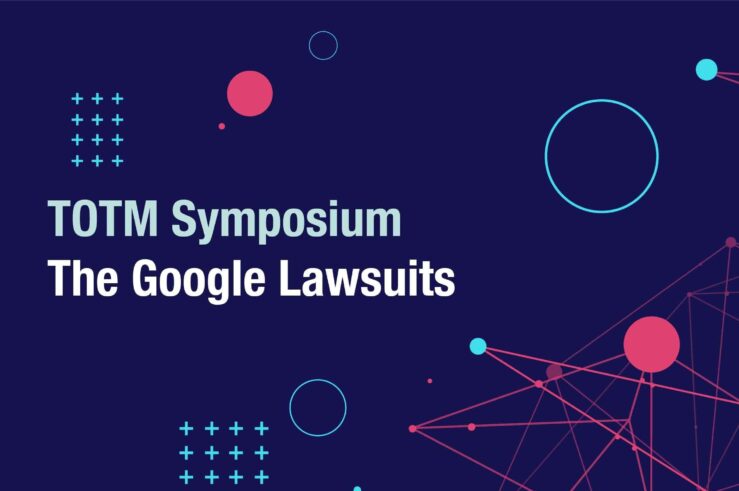Showing results for: “Google shopping manne”
The Case Against Google Advertising: What’s the Relevant Market and How Many Are There?
U.S. antitrust regulators have a history of narrowly defining relevant markets—often to the point of absurdity—in order to create market power out of thin air. The Federal Trade Commission (FTC) famously declared that Whole Foods and Wild Oats operated in the “premium natural and organic supermarkets market”—a narrowly defined market designed to exclude other supermarkets ... The Case Against Google Advertising: What’s the Relevant Market and How Many Are There?
Building the Digital Future: Can the EU Foster a Dynamic and Crime-Free Internet?
The European Commission has unveiled draft legislation (the Digital Services Act, or “DSA”) that would overhaul the rules governing the online lives of its citizens. The draft rules are something of a mixed bag. While online markets present important challenges for law enforcement, the DSA would significantly increase the cost of doing business in Europe ... Building the Digital Future: Can the EU Foster a Dynamic and Crime-Free Internet?
The Antitrust Prohibition of Favoritism, or the Imposition of Corporate Selflessness
It is my endeavor to scrutinize the questionable assessment articulated against default settings in the U.S. Justice Department’s lawsuit against Google. Default, I will argue, is no antitrust fault. Default in the Google case drastically differs from default referred to in the Microsoft case. In Part I, I argue the comparison is odious. Furthermore, in ... The Antitrust Prohibition of Favoritism, or the Imposition of Corporate Selflessness
Google and Shifting Conceptions of What It Means to Improve a Product
Judges sometimes claim that they do not pick winners when they decide antitrust cases. Nothing could be further from the truth. Competitive conduct by its nature harms competitors, and so if antitrust were merely to prohibit harm to competitors, antitrust would then destroy what it is meant to promote. What antitrust prohibits, therefore, is not ... Google and Shifting Conceptions of What It Means to Improve a Product
Symposium on the Future of American Antitrust: The Google Lawsuits
The U.S. Justice Department (DOJ) has brought a case alleging that Google’s deals with Android smartphone manufacturers, Apple, and third-party browsers to make Google Search their default general search engine are anticompetitive (ICLE’s tl;dr on the case is here), and the State of Texas has brought a suit against Google’s display advertising business. These follow ... Symposium on the Future of American Antitrust: The Google Lawsuits
Introductory Post: The United States v. Google
Google is facing a series of lawsuits in 2020 and 2021 that challenge some of the most fundamental parts of its business, and of the internet itself — Search, Android, Chrome, Google’s digital-advertising business, and potentially other services as well. The U.S. Justice Department (DOJ) has brought a case alleging that Google’s deals with Android ... Introductory Post: The United States v. Google
Rolled by Rewheel, Redux
The Finnish consultancy Rewheel periodically issues reports using mobile wireless pricing information to make claims about which countries’ markets are competitive and which are not. For example, Rewheel claims Canada and Greece have the “least competitive monthly prices” while the United Kingdom and Finland have the most competitive. Rewheel often claims that the number of ... Rolled by Rewheel, Redux
The Dishonesty of Conservative Attacks on Section 230
President Donald Trump has repeatedly called for repeal of Section 230. But while Trump and fellow conservatives decry Big Tech companies for their alleged anti-conservative bias, including at yet more recent hearings, their issue is not actually with Section 230. It’s with the First Amendment. Conservatives can’t actually do anything directly about how social media ... The Dishonesty of Conservative Attacks on Section 230
Buck’s “Third Way”: A Different Road to the Same Destination
Congressman Buck’s “Third Way” report offers a compromise between the House Judiciary Committee’s majority report, which proposes sweeping new regulation of tech companies, and the status quo, which Buck argues is unfair and insufficient. But though Buck rejects many of the majority’s reports proposals, what he proposes instead would lead to virtually the same outcome ... Buck’s “Third Way”: A Different Road to the Same Destination
The Dangerous Implications of Changing Antitrust Presumptions
One of the key recommendations of the House Judiciary Committee’s antitrust report which seems to have bipartisan support (see Rep. Buck’s report) is shifting evidentiary burdens of proof to defendants with “monopoly power.” These recommended changes are aimed at helping antitrust enforcers and private plaintiffs “win” more. The result may well be more convictions, more ... The Dangerous Implications of Changing Antitrust Presumptions
Antitrustifying Contract: Thoughts on Epic Games v. Apple and Apple v. Qualcomm
In the hands of a wise philosopher-king, the Sherman Act’s hard-to-define prohibitions of “restraints of trade” and “monopolization” are tools that will operate inevitably to advance the public interest in competitive markets. In the hands of real-world litigators, regulators and judges, those same words can operate to advance competitors’ private interests in securing commercial advantages ... Antitrustifying Contract: Thoughts on Epic Games v. Apple and Apple v. Qualcomm
What is a search engine?
What is a search engine? This might seem like an innocuous question, but it lies at the heart of the US Department of Justice and state Attorneys’ General antitrust complaint against Google, as well as the European Commission’s Google Search and Android decisions. It is also central to a report published by the UK’s Competition ... What is a search engine?









